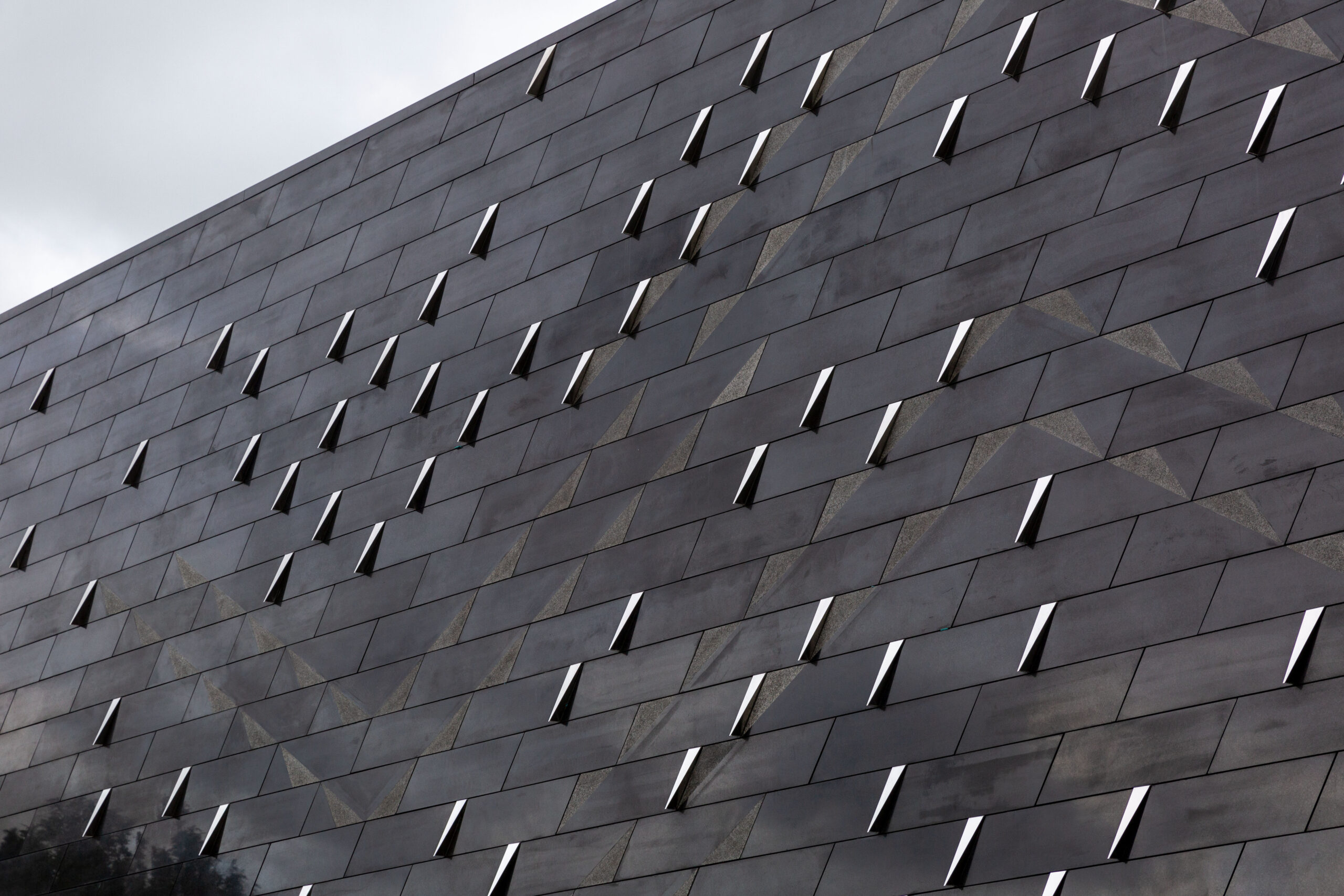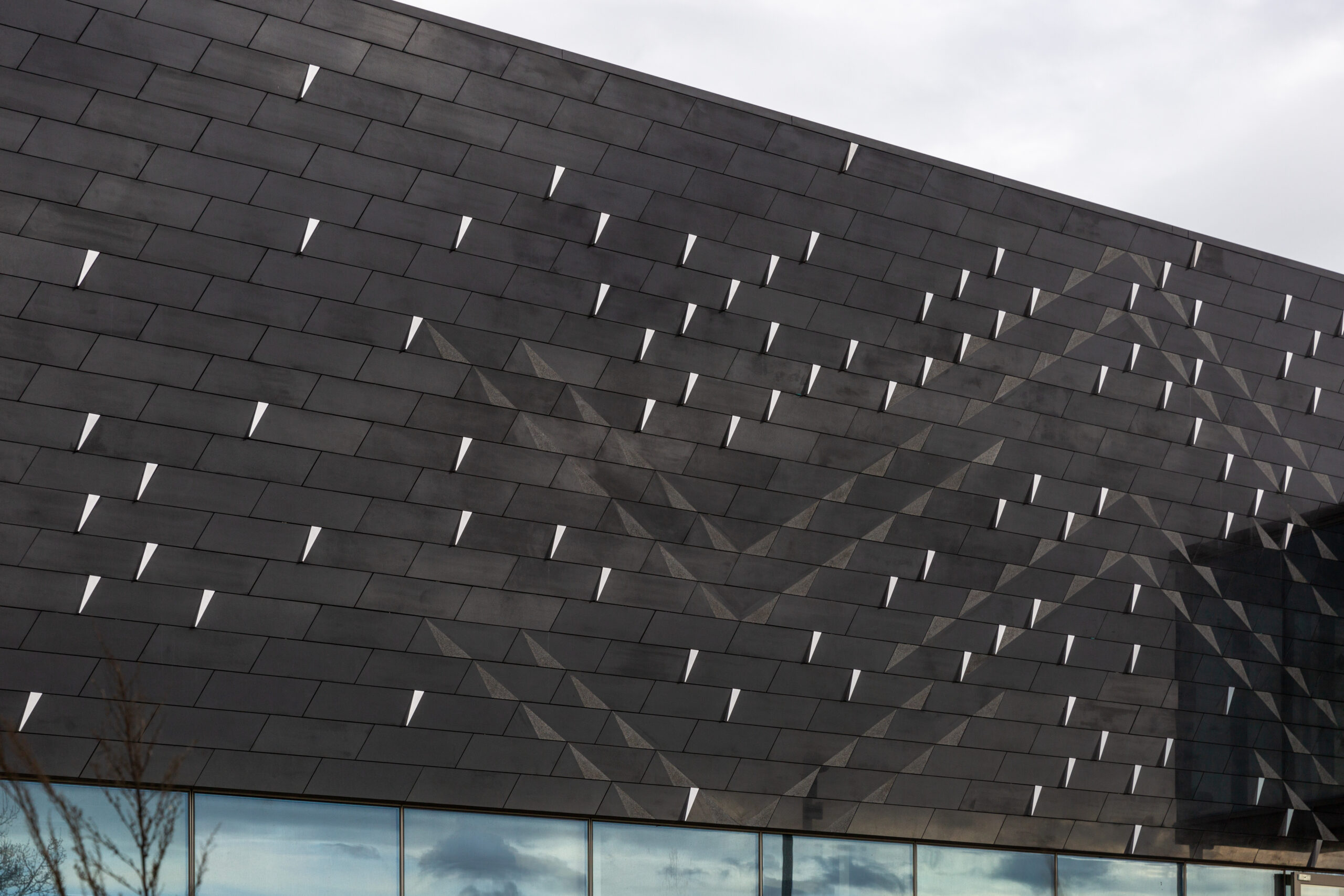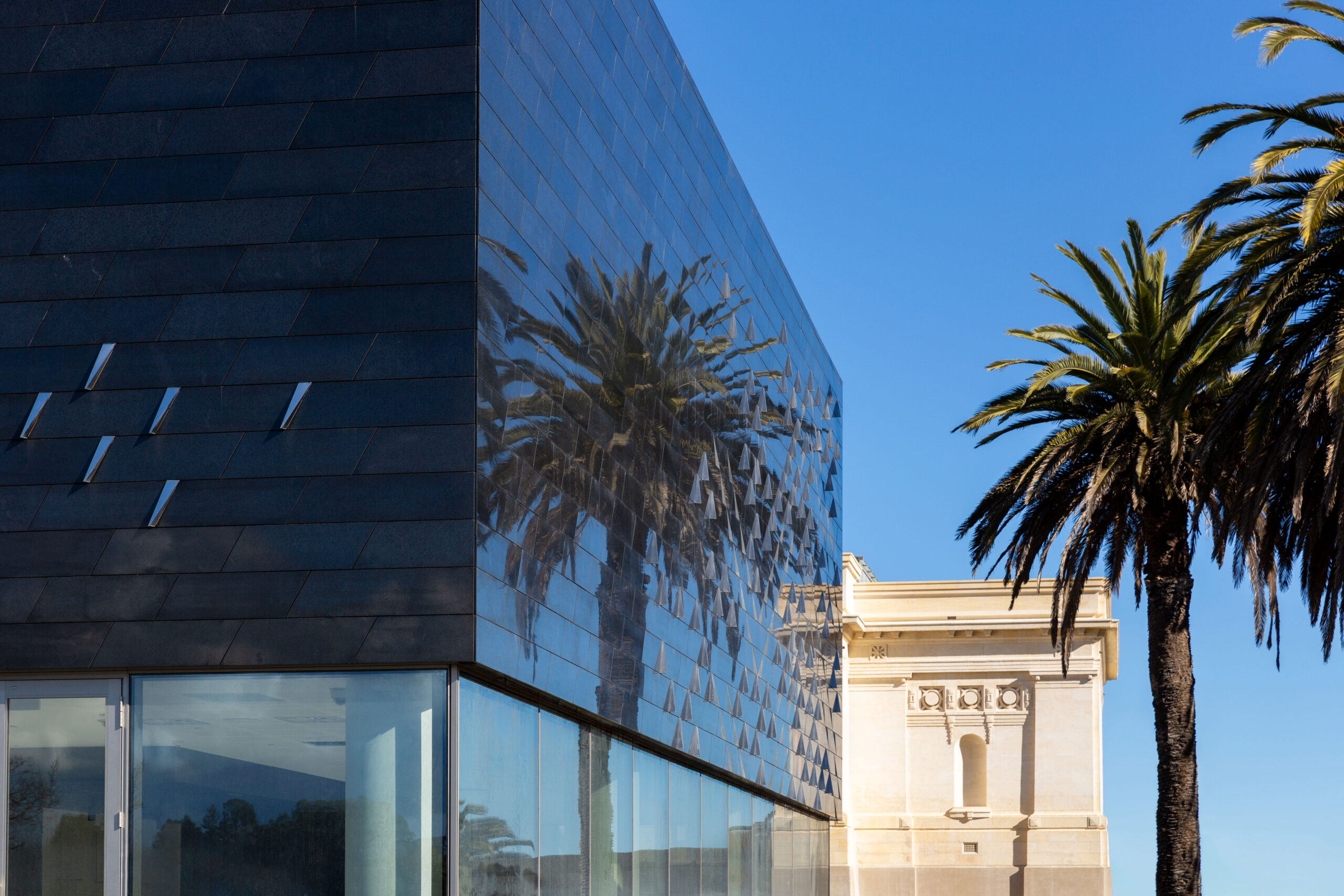
21 Aug Sarjeant Happenings: What the black granite cladding on Sarjeant extension Te Pātaka o Tā Te Atawhai Archie John Taiaroa means

For those of us lucky to live in Whanganui, we are enjoying watching Te Whare o Rehua Sarjeant Gallery’s redevelopment unfold in real time.
It’s exciting to see the black granite cladding on Te Pātaka o Tā Te Atawhai Archie John Taiaroa, with the metal “tioata” shards installed between the granite sections now visible.
Placed at intervals, the “tioata” have been designed to catch the effect of light shimmering on water.
At times this effect can be seen on the Whanganui River and is referred to as kānapanapa.
The kānapanapa concept, including the cultural narrative and designs on the new wing, are informed by Whanganui tribal histories.
The phenomenon of light from our river environment is embodied in the architecture and extends the cultural narrative to include all of the Whanganui community and beyond.
These key design narratives for Te Pātaka o Tā Te Atawhai Archie John Taiaroa were chosen through a series of workshops with architects Warren and Mahoney and Te Kāhui Toi, the artist group appointed by Te Rūnanga o Tūpoho, a collective of hapū from the lower reaches of the Whanganui River.
The black granite cladding of Te Pātaka o Tā Te Atawhai Archie John Taiaroa is etched with an Aramoana patterning and inlaid with the metal “tioata”, which mimic the effect of light playing on water. Photo / Sarjeant Gallery
This rigorous process involved in-depth discussions with tribal members to ensure that Tā Te Atawhai Archie John Taiaroa would be honoured in an appropriate manner.
The cultural narrative has informed the design of the facade, tiling for floors, the entry mahau, the waka-bridge, through to the elements of the new identity for Te Whare o Rehua Sarjeant Gallery.
The cultural lead for Te Kāhui Toi o Tūpoho on behalf of Te Rūnanga o Tupoho is Cecelia Kumeroa. Cecelia conceived the concept narrative with assistance from esteemed leader John Maihi and other tribal members.
Te Kāhui Toi o Tūpoho are Cecelia Kumeroa, Eugene Kara, Paul Millar and Aaron te Rangiao Gardiner.
The group of designers has been assembled for the sole purpose of completing cultural expression and design elements for the Sarjeant Gallery redevelopment project on behalf of Te Rūnanga o Tupoho.
Areas of co-design responsibility: lead for facade design of Te Pātaka o Tā Te Atawhai Archie John Taiaroa and interior tile design (atrium) — Cecelia Kumeroa; lead for waka-bridge — Eugene Kara; lead for mahau — Paul Millar; lead for interior pare (door lintel) — Aaron te Rangiao Gardiner.
Te Pātaka o Ta Te Atawhai Archie John Taiaroa tells a uniquely Whanganui story, an expression of the timeless relationship between Te Awa Tupua and mana whenua signifying a bridge between old and new, past and present.
Written for the Whanganui Chronicle by Jaki Arthur – communications lead for Te Whare o Rehua Sarjeant Gallery. Published in NZ Herald online on 20 August 2024



